Houston’s Parker Boot Company Produces Western Boots The Old-Fashioned Way — Craftsmen Use Hand Tools and the Results Are Stunning
Zephan Parker's Remarakable Journey Is All About the Handmade
BY Shelby Hodge // 02.23.24Zephan Parker founded Parker Boot Company 10 years ago with the intention of preserving the time-honored tradition of handmade boot making.
Western boot maker Zephan Parker is proudly old school. The handsome, custom footwear that emanates from Parker Boot Company’s Houston studio is created in the time-honored, truly handmade tradition of Texas boot making history with the emphasis on integrity, quality and craftsmanship. No modern machinery or technology employed.
While the upcoming Houston Livestock Show and Rodeo makes for a timely visit with Parker, you won’t find Parker or his boots selling amid the myriad booths in Reliant Center, even though the native Houstonian is a Lifetime Member of the Rodeo.
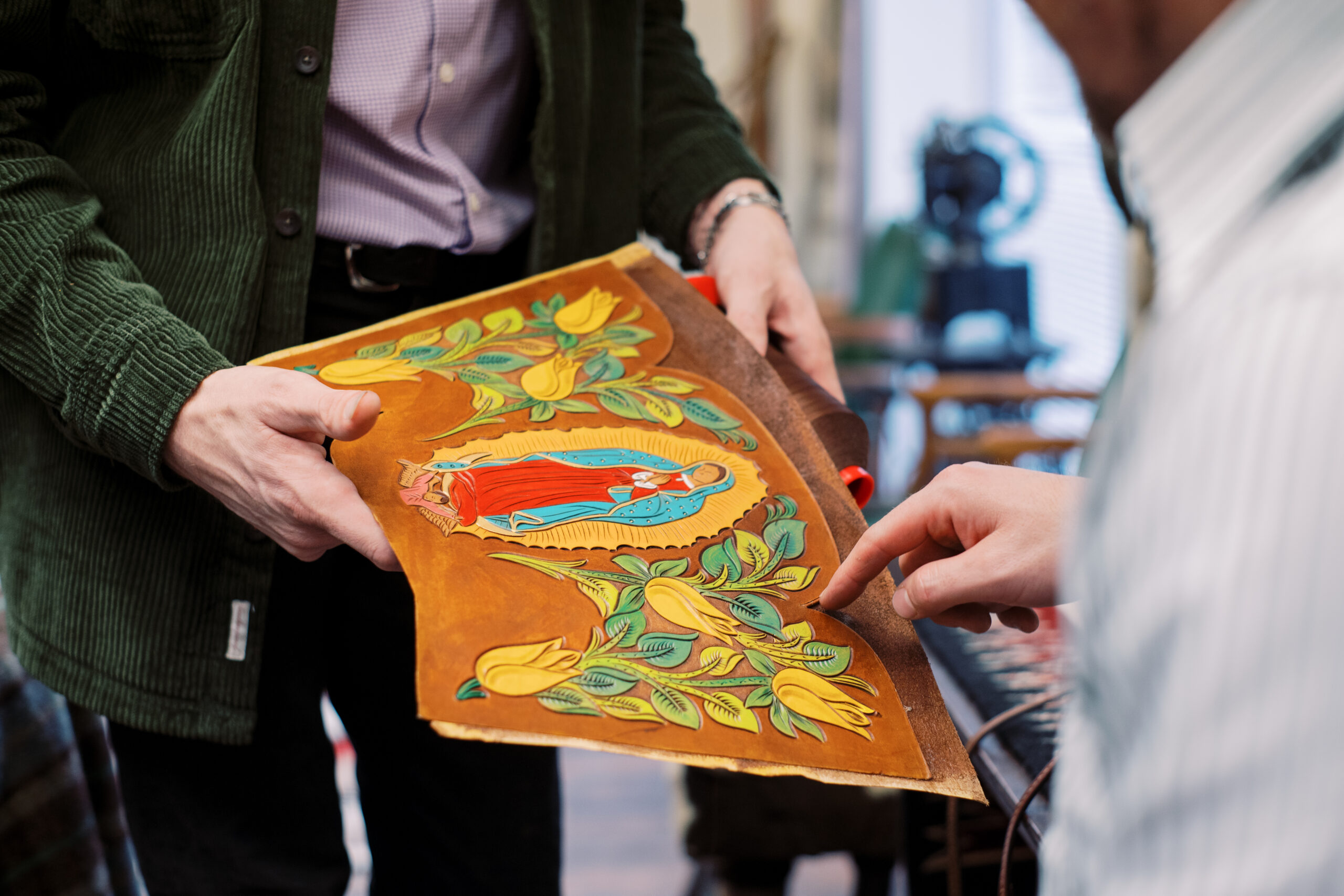
Instead, Parker will remain at home base, heading the team of craftsman in his studio/workshop which is tucked into a light industrial park off of the Northwest Freeway where he is celebrating his company’s 10th anniversary. There is indeed cause for celebration as Parker reveals an international customer roster with fans from Hong Kong, France, the Netherlands, Australia, China, Sweden and from across the United States. Parker Boots’ success has been strictly based on word of mouth.
No social media. No advertising. Just satisfied customers.
Zephan Parker earned his creds in boot making by studying with the state’s leading boot makers. His journey took him from the historic Kimmel Boot Company in Central Texas to the now-closed Wheeler Boot Company in Houston, where he learned from some of the best custom boot makers in the Lone Star State.
“We want to pass on the spirit of that heritage in the West, but delivered in a very luxurious and understated elevated way,” Parker says.
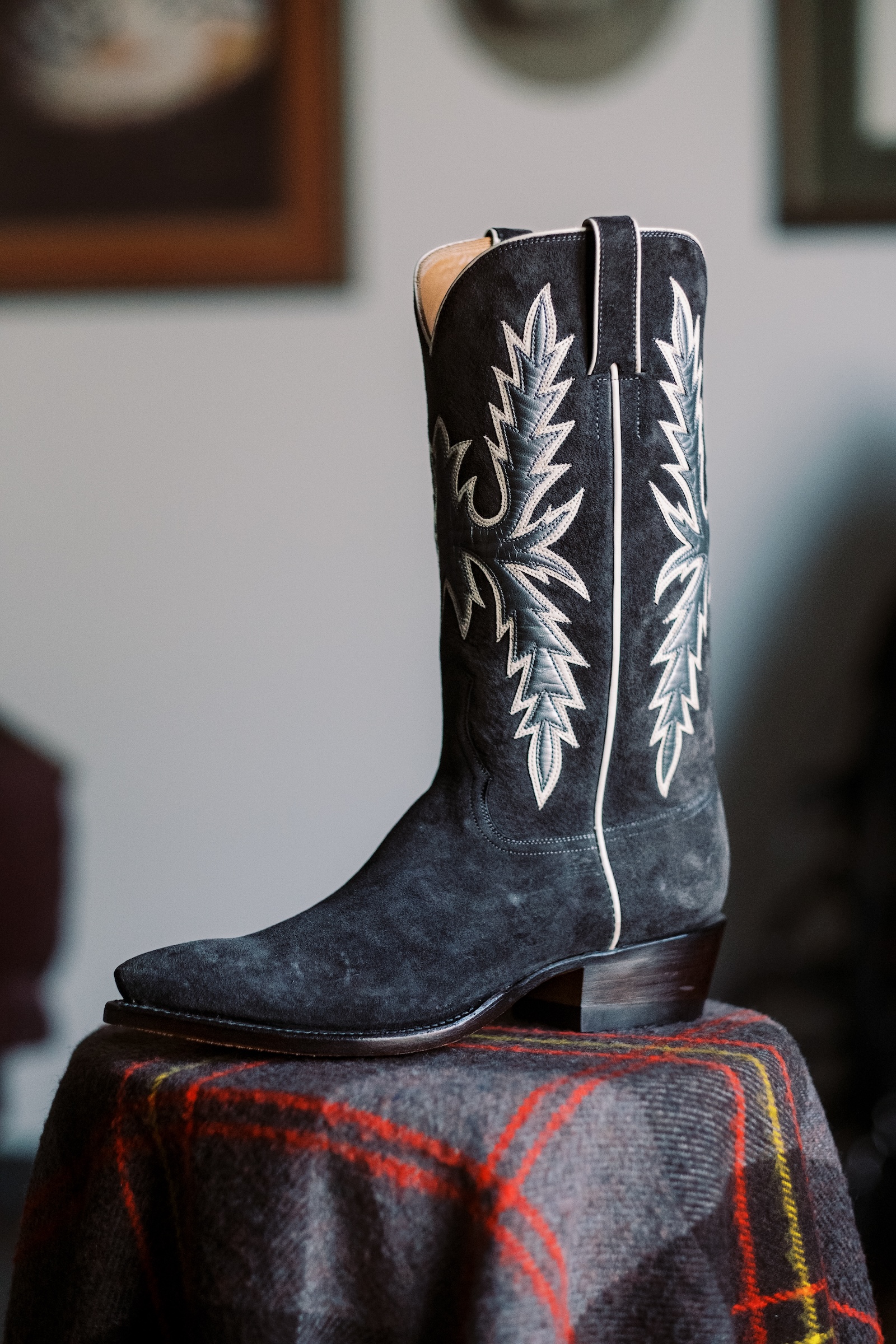
From his studio perch, Parker explains that purchasing from Parker Boot Company is “a bespoke kind of luxury experience.” One based on the start-to-finish personal detail and individual creativity that defines the Parker Boot along with true handmade production. Consider, for example, the manual Singer 31-15 World War II era sewing machines on which craftsmen assemble boot parts.
“We don’t reject modern tools in the sense that we hate technology,” Zephan Parker says. “We embrace it. We like it. But our boots are hand sketched. They are hand cut.
“We don’t use any of those factory style repetition, high volume machines. We don’t use laser cutters, where you hit a button on a computer and it cuts. We hand cut our lasts.”
Parker allows that it takes six to eight months to get a boot through the queue, adding that he never wants to have a 12-month backlog. However, in emergencies, he can turn out a pair of boots in a bit more than a week. And as the business grows, so does his crew but not in a manner that one would expect.
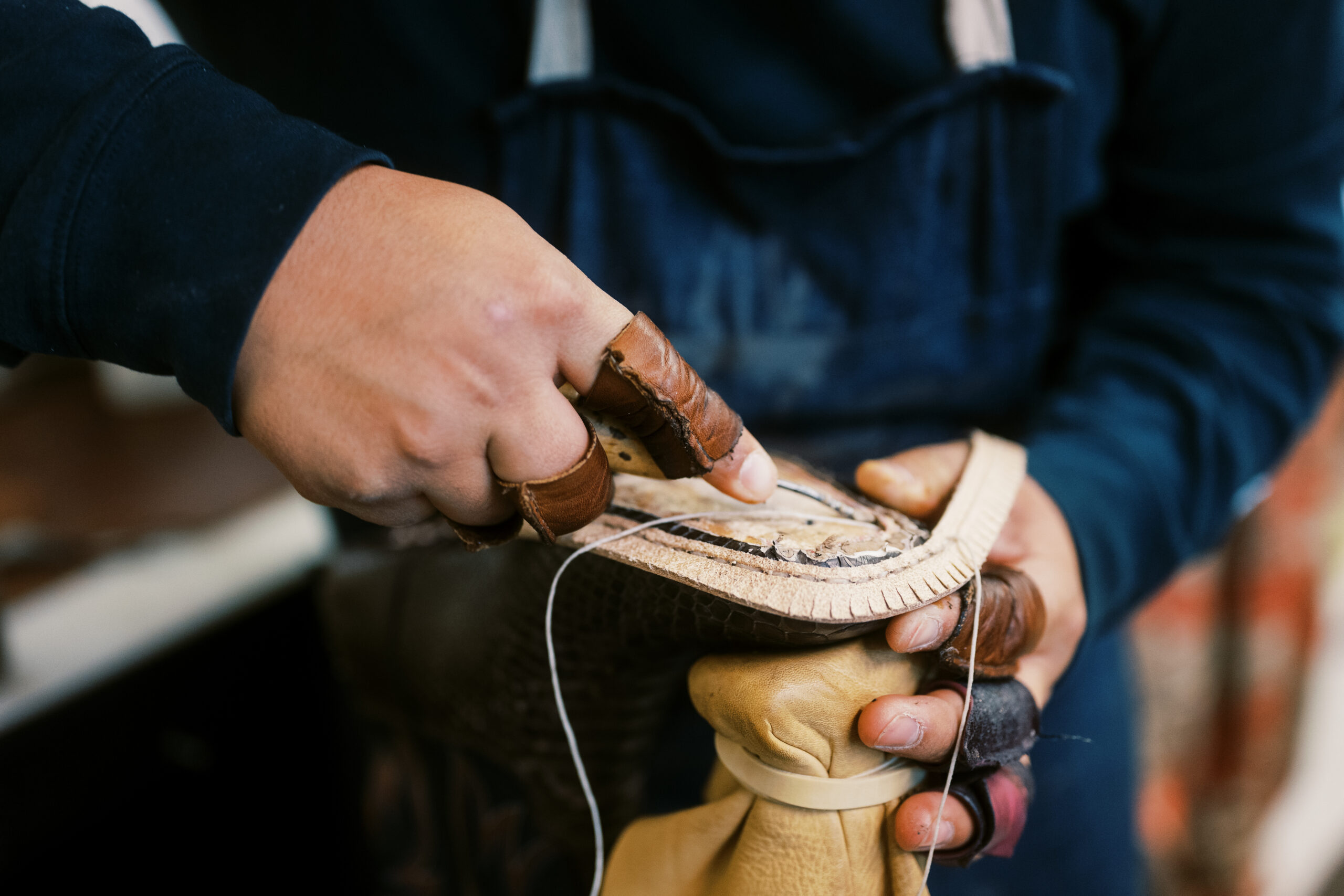
“We didn’t build our team from people that had been in the boot making world,” Parker says. “I decided to look out at other craft trades and then offer a higher wage to bring them into the boot making community to actually shape what we’ve tried to do in the world of bespoke luxury handmade goods.”
Of his handmade, heirloom quality cowboy boots, Parker adds, “like in all things nice, there has to be a root of integrity and quality and function.”
Parker has created boots for bridal parties, fathers of the bride, international statesmen, CEOs, rodeo mavens, Willie Nelson, Levi Goode and regular folks. The creativity is unlimited.
“With the Western boot, there’s a unique opportunity for expression,” this boot entrepreneur notes.
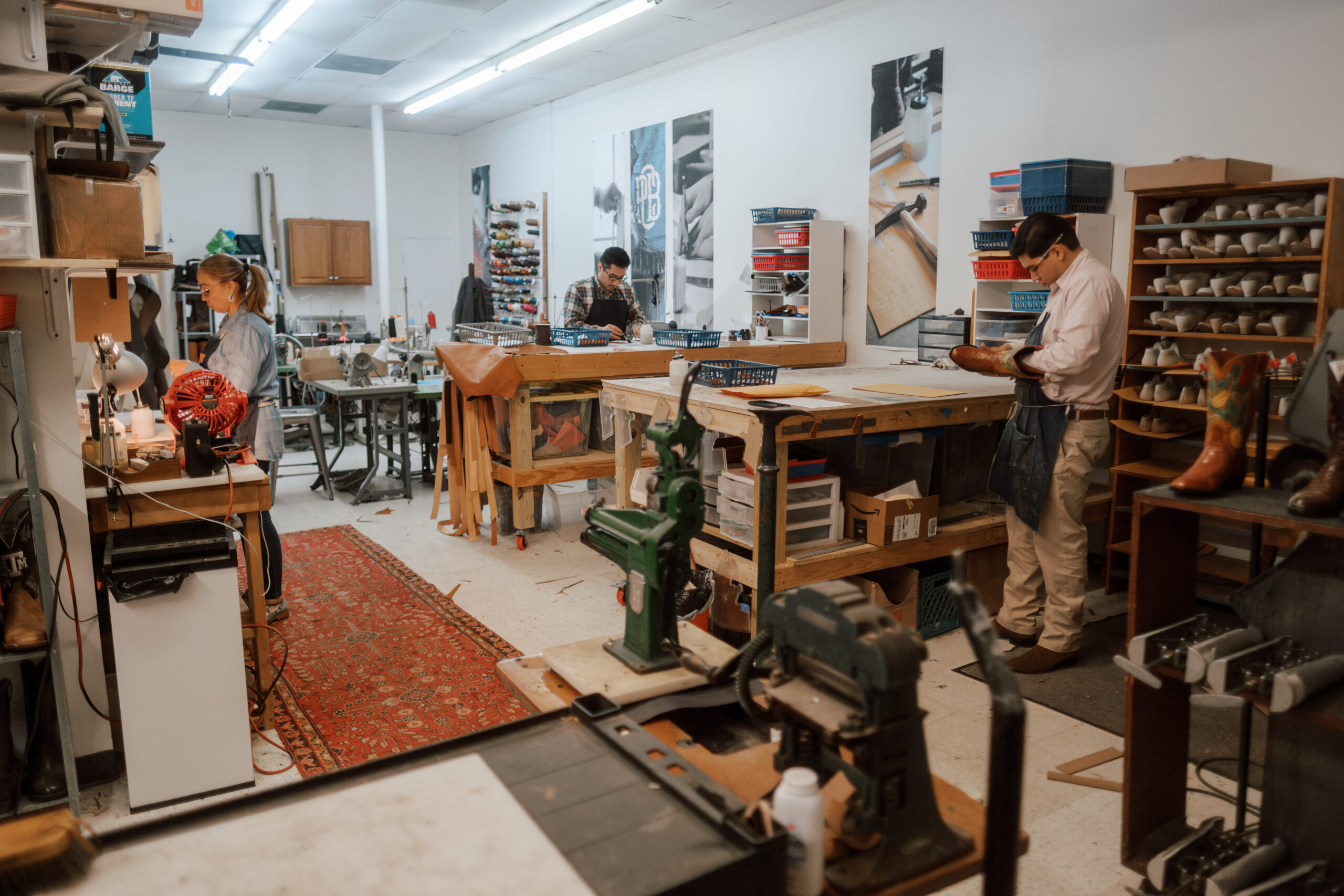
In the front of the house Parker Boot showroom, a wide selection of appealing custom boots for men and women are on display along with a collection of handmade leather belts and a rainbow display of the various hides from which the boots are crafted.
Hanging in hide splendor are samples of wild caught American alligator (the same skins that one would see on Louis Vuitton bags, Parker notes) farm raised crocodile, safari animal skins, Nile river crocs, camels and more.
“All of these skins are up-cycled,” Parker says. “So everything in this shop is a byproduct of meat consumption” be it ostrich, French calf, small bull skins from Spain and many more.








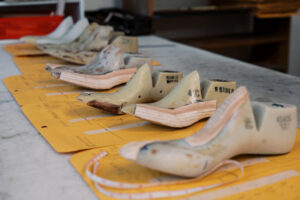

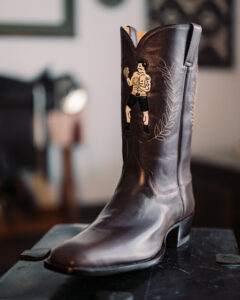

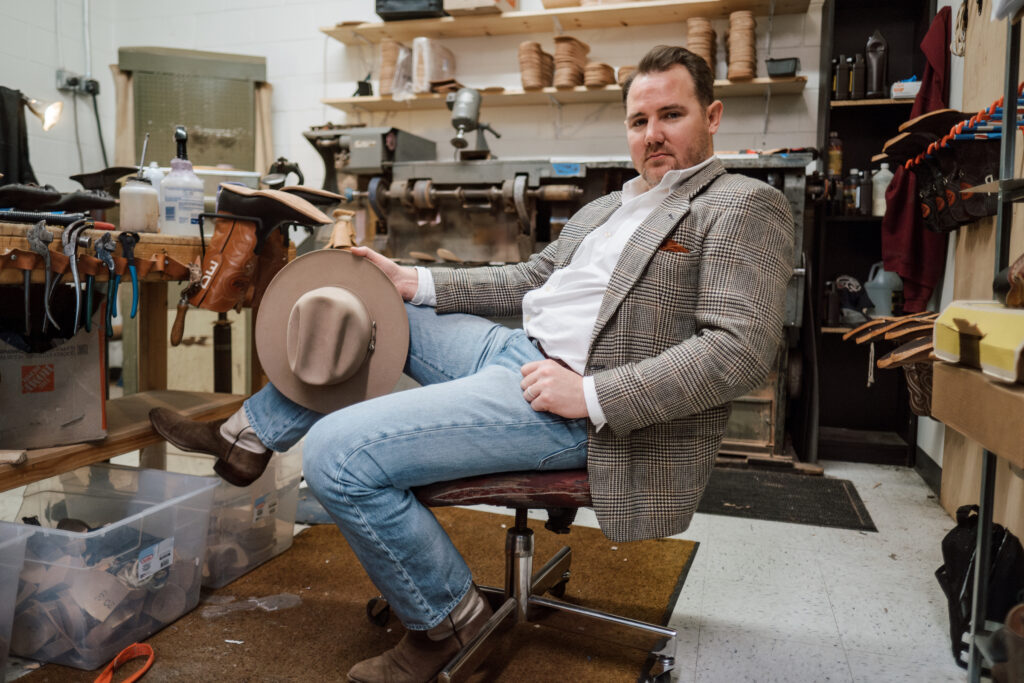





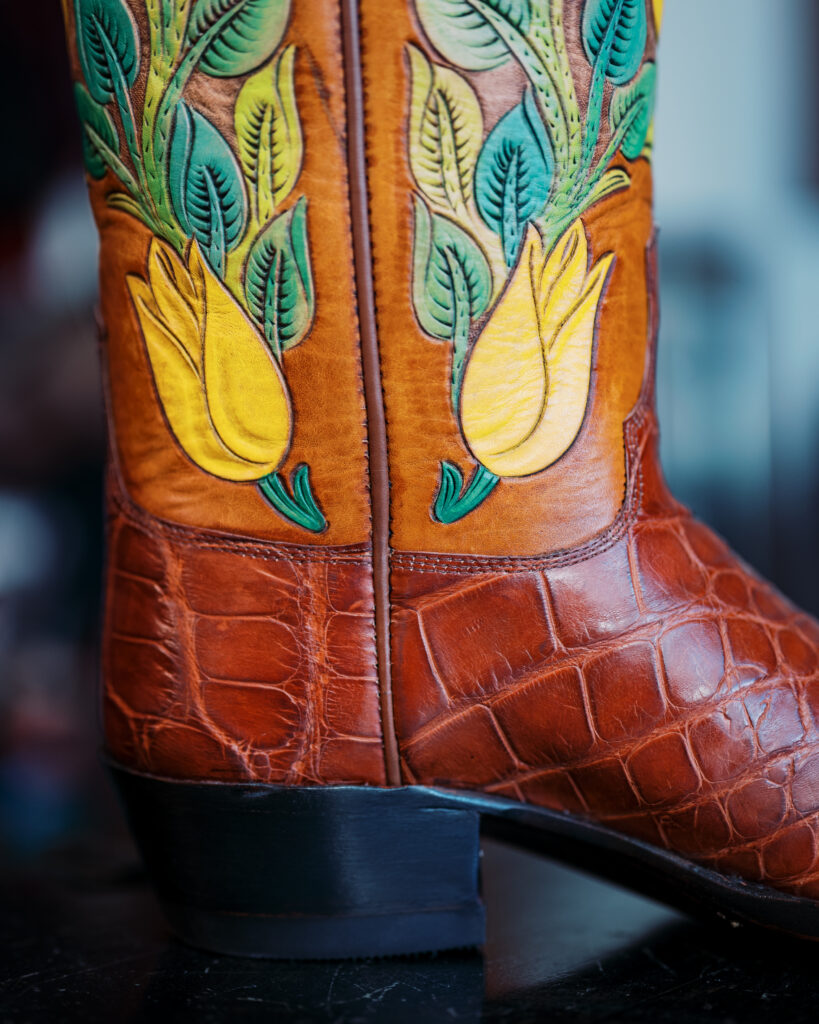











_md.jpeg)



